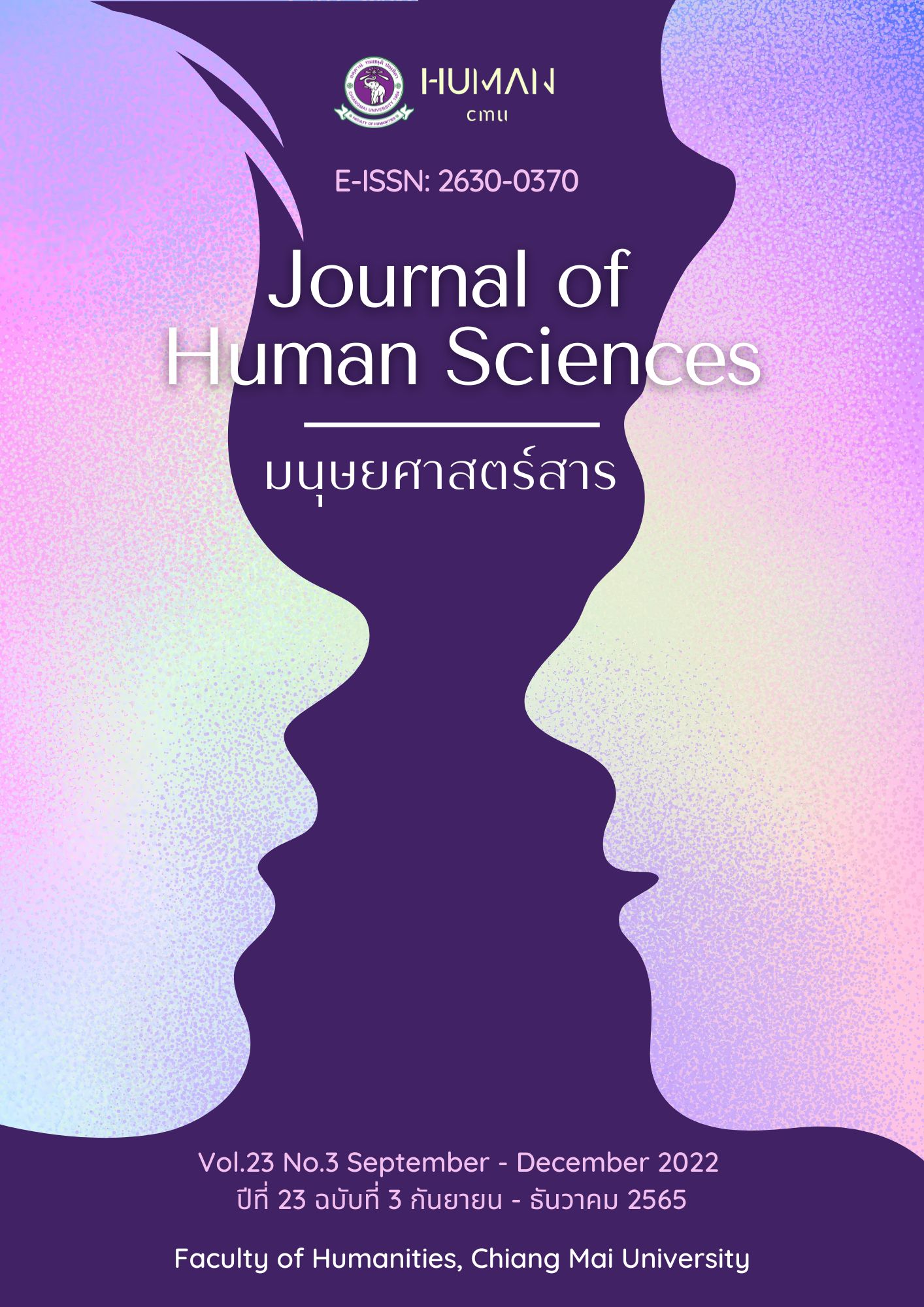แนวทางการจัดการเขตอุทยานแห่งชาติเพื่อให้เกิดการท่องเที่ยวอย่างยั่งยืน ; กรณีศึกษาอ่าวมาหยา อุทยานแห่งชาติหาดนพรัตน์ธารา-หมู่เกาะพีพี จังหวัดกระบี่
Main Article Content
บทคัดย่อ
การท่องเที่ยวอย่างยั่งยืน เป็นการท่องเที่ยวกระแสหลักในปัจจุบันเนื่องจากทำให้เกิดความสมดุลระหว่างการอนุรักษ์ทรัพยากรของแหล่งท่องเที่ยวควบคู่ไปกับการสร้างรายได้จากการท่องเที่ยว แต่สำหรับประเทศไทย พบว่าการนำหลักแนวคิดการท่องเที่ยวอย่างยั่งยืนมาประยุกต์ใช้ยังคงประสบปัญหา ตั้งแต่ระดับการกำหนดนโยบายมหาภาคไปจนถึงการบริหารจัดการในระดับพื้นที่ ปัญหาดังกล่าวนี้ อ่าวมาหยา อุทยานแห่งชาติหาดนพรัตน์ธารา - หมู่เกาะพีพี จังหวัดกระบี่ ถือเป็นกรณีศึกษาที่สำคัญ เนื่องจากในอดีต พื้นที่ อ่าวมาหยาเคยอนุญาตให้มีการดำเนินกิจกรรมการท่องเที่ยวโดยไม่มีมาตรการกำกับควบคุมดูแล ส่งผลให้ทรัพยากรทางทะเลซึ่งเป็นต้นทุนธรรมชาติที่สำคัญในการท่องเที่ยวเสื่อมโทรมลงอย่างรวดเร็ว และรุนแรง จนกระทั่งกรมอุทยานแห่งชาติ สัตว์ป่า และพันธุ์พืช ต้องมีคำสั่งปิดกิจกรรมการท่องเที่ยวในพื้นที่ดังกล่าวเพื่อฟื้นฟูทรัพยากรธรรมชาติ และแม้ปัจจุบันจะได้มีการอนุญาตให้มีการดำเนินกิจกรรมการท่องเที่ยวภายใต้มาตรการกำกับควบคุมดูแลอย่างเข้มงวดแล้ว เช่น การจำกัดจำนวนนักท่องเที่ยว การจำกัดเวลาการท่องเที่ยว การกำหนดเขตพื้นที่การดำเนินกิจกรรมการท่องเที่ยว การกำหนดจุดจอดเรือและท่าเทียบเรือลอยน้ำใหม่ แต่มาตรการต่าง ๆ เหล่านี้ สะท้อนให้เห็นการบริหารจัดการเฉพาะมิติทางสิ่งแวดล้อม ยังคงไม่มีมาตรการที่เน้นการบริหารจัดการมิติทางสังคมวัฒนธรรม และมิติทางเศรษฐกิจ ซึ่งเป็นอีก 2 มิติสำคัญในการทำให้เกิดการท่องเที่ยวอย่างยั่งยืน ดังนั้น เพื่อให้เกิดการท่องเที่ยวอย่างยั่งยืนในพื้นที่อ่าวมาหยา ภาครัฐจึงจำเป็นต้องเพิ่มมาตรการทางสังคมและวัฒนธรรม ด้วยการสร้างการรับรู้ความเข้าใจแก่ชุมชนในพื้นที่ ส่งเสริมและสนับสนุนการมีส่วนร่วมในการบริหารจัดการทรัพยากรการท่องเที่ยวในแหล่งชุมชน และเพิ่มมาตรการทางเศรษฐกิจ ด้วยการสนับสนุนให้เกิดการจ้างงานที่เกี่ยวกับการท่องเที่ยวในชุมชน ส่งเสริมให้ชุมชนสามารถสร้างรายได้เพิ่มขึ้นจากแหล่งท่องเที่ยวผ่านแนวคิดเศรษฐกิจสีน้ำเงิน และการแบ่งพื้นที่ในเขตอุทยานแห่งชาติเพื่อการใช้ประโยชน์ทางเศรษฐกิจของชุมชน ตลอดจนการยกระดับอ่าวมาหยาให้เป็นพื้นที่ตัวอย่างเพื่อการศึกษา ค้นคว้า วิจัย และให้ความรู้ มาตรการทางสังคมและวัฒนธรรมและมาตรการทางเศรษฐกิจจะช่วยส่งเสริมให้ชุมชนในพื้นที่เกิดความรู้สึกเป็นเจ้าของทรัพยากร แม้ไม่สามารถครอบครองได้เนื่องจากอยู่ในเขตอุทยานแห่งชาติ และเกิดการตระหนักรู้ถึงคุณค่าว่าทรัพยากรดังกล่าวสามารถสร้างรายได้ให้แก่ชุมชนได้อย่างมหาศาล ซึ่งจะเป็นจุดเริ่มต้นของการสร้างและส่งเสริมให้เกิดการท่องเที่ยวอย่างยั่งยืนต่อไป
Article Details

อนุญาตภายใต้เงื่อนไข Creative Commons Attribution-NonCommercial-NoDerivatives 4.0 International License.
เอกสารอ้างอิง
Ministry of Tourism and Sport (n.d). Rai ngarn chabub Somboon: Klongkarn ptewkarn songserm karn Thongtiew yarn yung yeen.
Department of National Parks, Wildlife and Plant Conservation. (2021). Statistics Data. Retrieved from http://it2.dnp.go.th/th/statistic-2563/
Department of National Parks, Wildlife and Plant Conservation. (2021). Krom Authayarn promtalang perd AowMaya penkhongkwanpeemai yum Jpngkiewluangnha Thaonun. Retrieved from http://news.dnp.go.th/news/10957?fb
clid=IwAR2YqMuHgIc7FypVcGXsPcYS_Iv9kvY_9POrStNCnsJYi01U2JsqVesDCn8
Bangkok Business. (2022). Thongtiew Krabikuekkuk chuangwanyhoodyaow tedsakarn SongKran 2022. Retrieved from https://www.bangkokbiznews.com/news/999229
The committee of Natural Resources and Environment (2021). Laingan karnpijarana sueksa rueng yuttipiewpijarana suksa sorbhakortedjing koranee pid AowMaya JangwatKrabi. Retrieved from http://edoctest.parliament.go.th/getfile.aspx?id=746962&
file=4.18+%E0%B8%A3%E0%B8%B2%E0%B8%A2%E0%B8%87%E0%B8%B2%E0%B8%99%E0%B8%AD%E0%B9%88%E0%B8%B2%E0%B8%A7%E0%B8%A1%E0%B8%B2%E0%B8%AB%E0%B8%A2%E0%B8%B2.pdf
Jormsuda Thongdee (2014). MongKrabi eekmum tee Korklang. Retrieved from https://d.dailynews.co.th/article/276407/
Krabi Global City. (2014). Planpattana karn Tongtiew witee chumchon Jangwat Krabi 2014 – 2020. Retrieved from http://www.krabi.go.th/krabi2015/m_lifetravel.php
Office of the National Economic and Social Development Council Announcement Perdkarn Tongtiew AowMaya lae Aow Losama AuthayarnhardNopparattara MhukorPP (2021) Retrived from ราชกิจจานุเบกษา เล่ม 135 ตอนพิเศษ 122 ง. หน้า 13.
Office of the National Economic and Social Development Council Announcement Perd karnThongtiew AowMaya lae KorLosama Authayarn hangcharthardNopparattara MhukorPP (2021) Retrieved from ราชกิจจานุเบกษา เล่ม 135 ตอนพิเศษ 243 ง. หน้า 15.
Office of the National Economic and Social Development Council Announcement Perdkarn Tongtiew AowMaya lae Aow Losama AuthayarnhardNopparattara MhukorPP (2021). Retrieved from ราชกิจจานุเบกษา เล่ม 138 ตอนพิเศษ 318 ง. หน้า 23.
Paiduaykan (2018).Korklang Tiewkin Imm oboun witeechomchon. Retrieved from https://www.paiduaykan.com/travel/เกาะกลาง
Narakorn Nuntriphop (in press). Karn Anurak fuenfu rabobniwed lhangthongtiew: Koranee AowMaya nai kedAuthayarnhangchard Nopparadtra-MhukorPP jangwatKrabi. Retrieved from https://www.parliament.go.th/ewtadmin/ewt/parliament_parcy/ewt_dl_link.php?nid=53284&filename=index
Naruemon Thaparn (2020). Tiew korklang sumpas witee chowlae sanea muengkowkanarbnum. Retrieved from https://www.bangkokbiznews.com/lifestyle/901489
News Monitor (2017). Loom yean fong 100 laan phu anuyarthaitaitamnhung The Beach tumlaiphumitat Aow Maya. Retrieved from https://www.matichon.co.th/
local/news_511915
News Monitor (2018). Rorkoi 18 pee kadeefong nhung The Beach kraisinsood lhungsongfaipraneepranorm kard July neemeekorsaroop. Retrieved from https://www.matichon.co.th/news-monitor/news_924846
Somyot Kietaramkul, Nisit Koonphon and Kris Akarach (2022). Satiun Thai: Koryownoy Thongtiewyungyeanradublok. Retrieved from https://program.thaipbs.or.th/SaTaeunThai/episodes/84471
The association of domestic travel (n.d.). Karn Thongtiew Tee Yungyeen. Retrieved from https://www.adt.or.th/page/sustainable-tourism/en
Community Organizations Development Institute (2015). Kwamsook tee kraikor sam pas dai bon kor Yownoy. Retrieved from https://ref.codi.or.th/public-relations/news/10723-2015-04-10-03-55-11
The Thailand Research Fund (2018) Raingan: Botsamruag chengnayoby sumrhubsedthakijseenumngen. Retrieved from https://www.knowledgefarm.
in.th/policy-review-eco-tourism/)
Office of the National Economic and Social Development Council, 2019, National Strategy/2018 – 2038. Retrived from https://www.nesdc.go.th/download/document/SAC/NS_PlanOct2018.pdf
Office of the National Economic and Social Development Council. Plan maebot pai tai yootasartchart Praden karn Thongtiew 2018 - 2038. Retrieved from http://nscr.nesdb.go.th/wp-content/uploads/2019/04/05-การท่องเที่ยว.pdf
Designated areas of Sustainable Tourism Administration (n.d.). Karn Thongtiew yang yungyean. Retrieved from http://110.78.114.133/sec39/e-loader/data/
P1L5fLIAN52347ThuJan2017.pdf
Arun Nhongpol (2019). Tee kor Yownoy meearai maichai kaekoawsoy khong tiewtud taepen kwamsumphan teeyouruamkunyang kiekoon. Retrieved from https://thestandard.co/koh-yao-noi/.
Aumnuay Jaiklieng (2022). Nuk Thongtiewhang tedsakarn Songkrantee JangwhatKrabi Samnakngan jaowtha phumipark sakaKrabi Fowrawang kwampordpaikem. Sumnakkhow kromprachasamphan. Retrieved from https://thainews.prd.go.th/th/news/detail/TCATG220415142523144
Prak Visal and Sally Nay. (2018). Beach Management in Sihanoukville, Preah Sihanouk, Cambodia for Sustainable Tourism in Local Contributions to Global Sustainable Agenda: Case Studies in Integrated Coastal Management in the East Asian Seas Region. Partnerships in Environmental Management for the Seas of East Asia (PEMSEA) and Coastal Management Center (CMC), Quezon City, Philippines.
United States Agency for International Development. (n.d.). EGYPT: Red Sea Sustainable Tourism. Retrieved 26 March 2022. from https://pdf.usaid.gov/pdf_docs/Pdach397.pdf
Zamfir, A. & Corbos, R. A. (2015). Towards Sustainable Tourism Development in Urban Areas: Case Study on Bucharest as Tourist Destination, Sustainability, 7(9), 1-14


